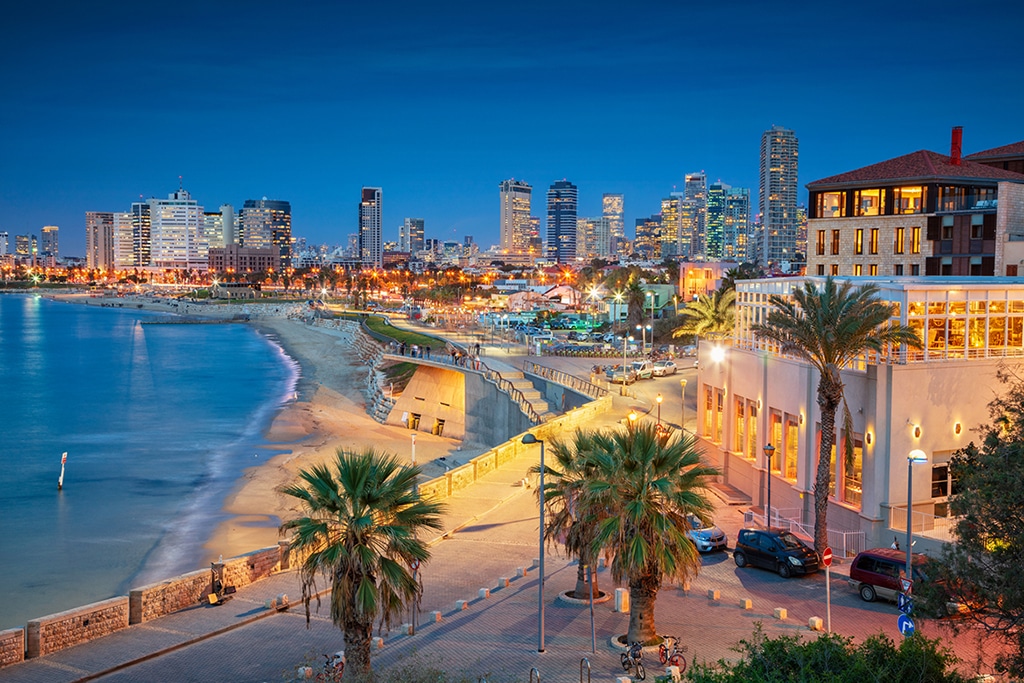
Content specialist with interest across sectors like Finance, Politics, Environment, Technology & Education. Loves Fiction! A reader, dreamer & blogger. When not writing, you will find her enjoying solitude like her cats
Tel Aviv witnessed around a 10% increase in the cost of goods like groceries and services.

A recently released report by the Economist Intelligence Unit named Tel Aviv, an Israeli city, as the world’s most expensive city to live in. This is the first time Tel Aviv has overtaken prominent cities like Zurich and Paris, ascending from its fifth position last year. The major contributors to this spike in inflation this year have been supply-chain issues and the restrictions posed by COVID19.
Tel Aviv is one of Israel’s most popular cities and is famous for its high-end restaurants, cafes and a glittery nightlife. It also boasts of housing Israel’s most affluent section. It is also evolving and one step ahead when it comes to emerging technologies. 2020 saw Tel Aviv Stock Exchange (TASE) launching its own blockchain-based platform for securities lending.
The principal reason is the appreciation of shekel, the Israeli currency, against the dollar post the country’s successful vaccination programme against COVID19.
The report studied the shooting prices of almost 200 products and services and discovered Tel Aviv to have around 10 per cent of its goods sold at inflated prices making grocery shopping and transport expensive.
A more general cause was also the rise in the price of oil and supply chain concerns resulting from a combination of factors and shortages due to restrictions.
AT 3.5% compared to 1.9% last year, the EIU’s 2021 WCOL Index represents the fastest growth of inflation seen in the last 5 years. The data was collected by EIU between August 16 and September 12 this year, a period that was turbulent for the supply chain operations across the world due to rising freight cost, increase in the prices of general goods, fluctuations in demand and changes in exchange rates.
Singapore and Paris shared the second spot jointly whereas Zurich and Hong Kong occupied the 4th and 5th positions respectively. The Middle East and Africa comprised the cheapest cities with Damascus once again coming at the last spot being the cheapest city in the world. A total of 40 new cities were added to this year’s list, out of which 10 cities found a place in the bottom 50 whereas only three made it to the top 50, Edinburgh being one of them. Some cities also witnessed a dip in their cost of living expenses like Rome, Lima and Bangkok.
You can view the complete report on the EIU’s website.
Upasana Dutt, head of WCOL at EIU, predicts the costs to rise further due to continuing restrictions, supply chain problems and rise in inflation rates. However, she is also hopeful of the rise in prices to be moderate post the increase in interest rates by the country’s Central Banks.
The WCOL Index gives an insight into the cost of living across 173 cities. Both individuals and organizations can use it to determine the living expenses within a city. This biannual report provides detailed comparisons across 200 products and services. The EIU has a unique methodology in place that helps it to collect more than 50,000 individual prices, which are then internally vetted and used in the creation of special indices by expert economists. It provides comprehensive coverage of several factors affecting the inflation rates and is a reliable repository of information.
In the aftermath of the COVID19 pandemic, a lot has changed owing to the restrictions, shortages and general misfortunes resulting in increased living standards in most cities. Although many cities are recuperating from the aftereffects, the sudden increase in cases owing to new variants and mutations is making things unpredictable. If the trend continues, the graph will keep expanding making cities more and more costly in the coming months. To fight the rising expenses, countries need a combination of government intervention and redesigning of the financial ecosystem. You would want to take a look at the report and make your international trip plans with the living expenses in mind.
Disclaimer: Coinspeaker is committed to providing unbiased and transparent reporting. This article aims to deliver accurate and timely information but should not be taken as financial or investment advice. Since market conditions can change rapidly, we encourage you to verify information on your own and consult with a professional before making any decisions based on this content.

Content specialist with interest across sectors like Finance, Politics, Environment, Technology & Education. Loves Fiction! A reader, dreamer & blogger. When not writing, you will find her enjoying solitude like her cats



